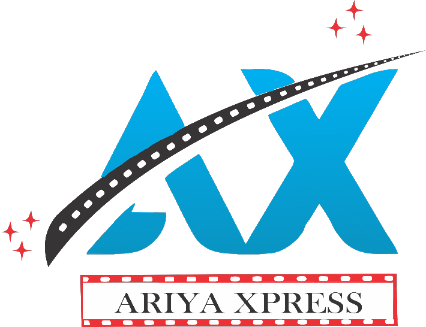Nigeria’s debt profile has been on the increase because of the impact of revenue crash and the crises trailing the coronavirus pandemic on the economy, the Debt Management Office has said.
However, some economists and experts have warned of the dangers of continued borrowing from the Central Bank of Nigeria by the Federal Government.
Both the DMO and experts were responding to questions posed by our correspondents following the claim by the Edo State Governor, Godwin Obaseki, that the country printed N60bn to augment what the three tiers of government shared in March.
Obaseki reportedly stated on Thursday that Nigeria was in huge financial trouble, alleging that the Federal Government printed N60bn in March as part of federal allocation last month.
The Edo governor also expressed worry over the country’s increased borrowing, saying it was wrong to continue borrowing without a tangible plan for debt repayment.
Nigeria, like others, increased borrowing due to COVID-19 – DMO
In a reply to an enquiry from one of our correspondents, the Director-General of DMO, Patience Oniha, blamed crashed revenue and COVID-19 for increased borrowing.
She said the rate of borrowing had started to come down until COVID-19 forced Nigeria, like many other nations, to increase its borrowing in order to buoy the economy.
Oniha said, “The higher level of borrowing from 2015 due to the revenue crash occasioned by crude oil started trending downwards thereafter.
“Unfortunately, COVID reversed that trend. That became necessary and many countries including the UK and USA also embarked on new borrowing.”
She added, “It is not correct to say that the economic team is not concerned about how the debt will be repaid. You know that a Debt Sustainability Analysis and Medium Term Debt Strategy are done.”
The DMO boss noted that apart from the Federal Government, the states are also borrowing increasingly too.
She added, “I am unable to comment on the ‘top-up’ at Federal Accounts Allocation Committee as the DMO is not involved in the determination of how much is shared at FAAC.
“I am not sure how His Excellency arrived at N15-16tn of total borrowings.”
Debt rose by N5.52tn in 2020
Statistics obtained from the DMO showed that the country borrowed N5.52tn in 2020. As of December 2019, the country’s debt portfolio stood at N27.4tn.
However, Nigeria’s total public debt rose to N32.9tn at the end of December 2020, according to a statement released by the DMO in March.
The DMO disclosed that the total public debt to the Gross Domestic Product was 21.61 per cent, adding that it was within Nigeria’s new limit of 40 per cent.
“Nigeria’s total public debt as of December 31, 2020 was N32.92tn. The figures include the debt stock of the federal and state governments, as well as, the Federal Capital Territory,” it stated.
It said that after Nigeria exited recession in 2017, the level of new borrowing at the federal level as shown in the annual Appropriation Acts, had been declining to moderate the rate of growth in the public debt stock in order to ensure debt sustainability.
The DMO stated that new borrowing to part finance budget deficits had declined steadily from N2.36tn in 2017 to N2.01tn in 2018, N1.61tn in 2019 and N1.59tn in the first 2020 Appropriation Act.
This trend was reversed in 2020 due to the economic and social impact of the COVID-19 pandemic as new borrowing in the revised 2020 Appropriation Act was N4.2tn.
The DMO stated, “It should be noted though, that apart from the new domestic borrowing of N2.3tn, the other new borrowings were concessional loans from the International Monetary Fund ($3.34bn) and other multilateral and bilateral lenders.
“This incremental borrowing to part-finance the 2020 budget and the additional issuance of promissory notes to settle some arrears of the Federal Government of Nigeria, contributed to the increase in public debt stock.
“New domestic borrowings by state governments also contributed to the growth in the public debt stock.”
Currency printing, excessive borrowing dangerous – Experts
The Director-General, Lagos Chamber of Commerce and Industry, Dr. Muda Yusuf, and a former President, Association of National Accountants of Nigeria, Dr Sam Nzekwe, stated that government borrowing from the CBN was not new.
Yusuf said, “The governor of Edo State has not said anything new. The situation is even worse than the picture he painted. The CBN financing of government deficit has reached unprecedented levels in recent years.
“In 2020, it was in excess of N2tn. In monetary parlance, it is referred to as Ways and Means financing by the CBN.”
Yusuf said these were reflections of the weak revenue performance of government in the face of growing expenditure.
“The situation clearly poses serious macroeconomic risks, some of which has started to crystallise,” he stated.
The LCCI boss added, “The biggest of such risks is the inflation risk. It is a contributory factor to the current high inflationary pressure in the economy.
“Inflation was at 17.33 per cent as at February, one of the highest in recent times. Food inflation is even much higher at over 21 per cent.”
Yusuf said there were also implications for the currency, stressing that mounting ways and means financing had increased money supply and invariably weakened the currency.
“All of these are taking a huge toll on production costs, operating costs and the welfare of citizens,” he stated.
On his part, Nzekwe corroborated the position of the LCCI boss, as he noted that the industrial sector in Nigeria had been weakened.
“By printing such funds, it will further lead to high inflation as we’ve been seeing for several months. This adversely affects the economy,” he said.
The former ANAN president stated that the government must come up with ways to boost the output of the real sector in order to curb the slide in that sector and its negative impact on the economy.
A professor of economics at the Olabisi Onabanjo University, Ogun State, Sheriffdeen Tella, said if the government had truly printed N60bn, then it contributed to the rising inflation in the economy.
He however stated that it was important to make sure it was not just a political statement.
Tella said, “If what Obaseki said is true, it simply means that is part of what is causing the inflation in the economy.
“If the government is borrowing money to finance the budget from the central bank, then that is dangerous. But we are not sure if that’s true; we have to verify if what he said is not a political statement.”
A former Director-General, Chartered Insurance Institute of Nigeria, Mr Richard Borokini, said printing money that was not backed by any production could lead to hyper-inflation.
“If the government continues to print money that is not backed up by any production, it increases money supply and you have more money chasing few goods,” he said.
While explaining that money printed that was not backed up by receipt such as export earnings was not good for the economy, he said if it was a debt, it could be channelled to either development of infrastructure or something that would create effect on the economy.
Currency printing doubtful – Rewane
However, a foremost economist and Managing Director, Financial Derivatives Company Limited, Mr Bismarck Rewane, expressed doubt that the Federal Government would resort to printing of money to fund its revenue shortfalls.
He told one of our correspondents on Sunday that since the price of crude oil had increased, the revenue profile of the country had become much more robust than it was at this time last year.
He said, “The Federal Government of Nigeria is unlikely to be printing money for revenue allocation. The traditional way of funding a deficit is by issuing treasury bills or Federal Government’s bonds, or at worst being accommodated by ways and means advances by the Central Bank of Nigeria.
“So, it is very unlikely that the Federal Government of Nigeria will resort to printing money to meet its revenue allocation to states. When you resort to printing money, then you are a banana republic.”
We’re not aware of currency printing – Finance ministry, CBN
The Central Bank of Nigeria had denied knowledge of claim that Nigeria printed billions of naira last month to cushion its financial trouble.
When contacted to comment on the development, the spokesperson of CBN, Osita Nwanisobi, told one of our correspondents that he was not aware of any N60bn that was printed.
“I am not aware of that (N60bn printed by government,” he told our correspondent on Saturday.
Similarly, when contacted to speak on the N60bn that was allegedly printed in March 2021, the Federal Ministry of Finance, Budget and National Planning said enquiries on the matter should be directed to the governor who made the allegation.
The media aide to the finance minister, Yunusa Abdullahi, said the Edo State governor or the CBN should be contacted.
“Please direct your questions to the governor who made the claim or the CBN,” he told our correspondent.
Copyright PUNCH.




